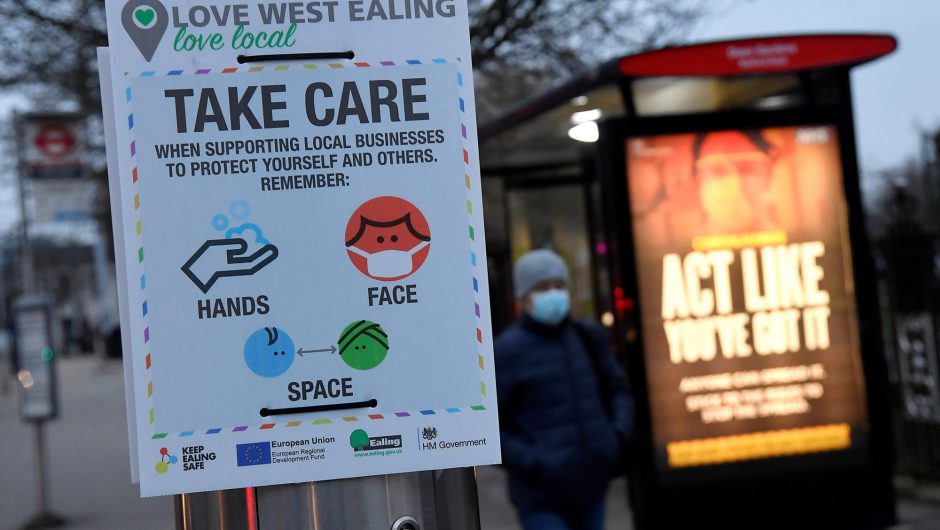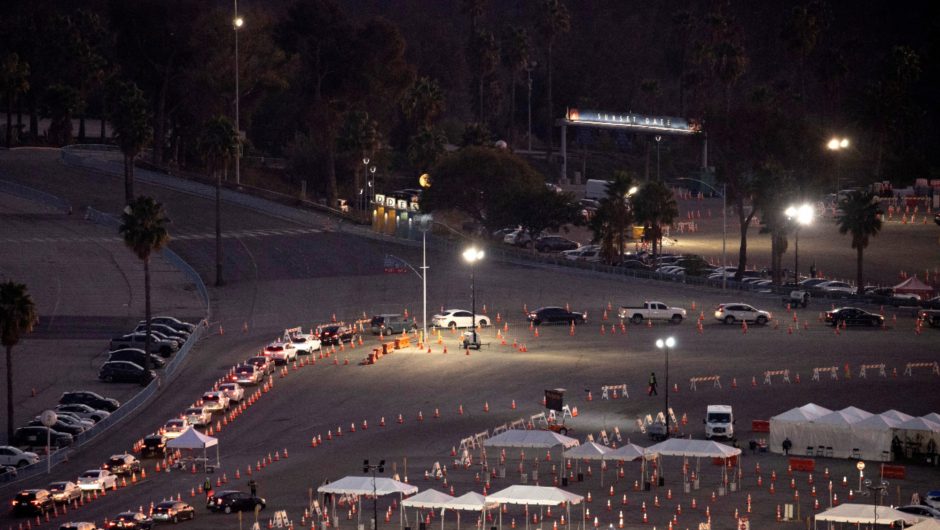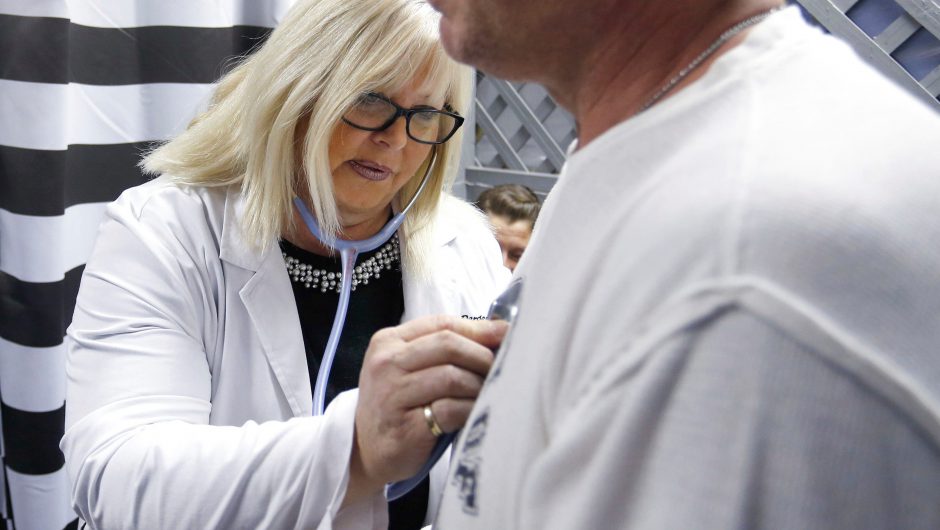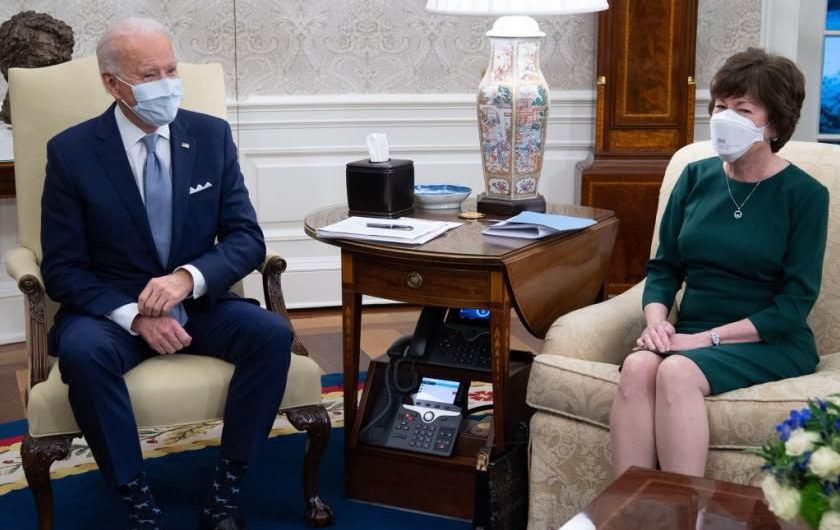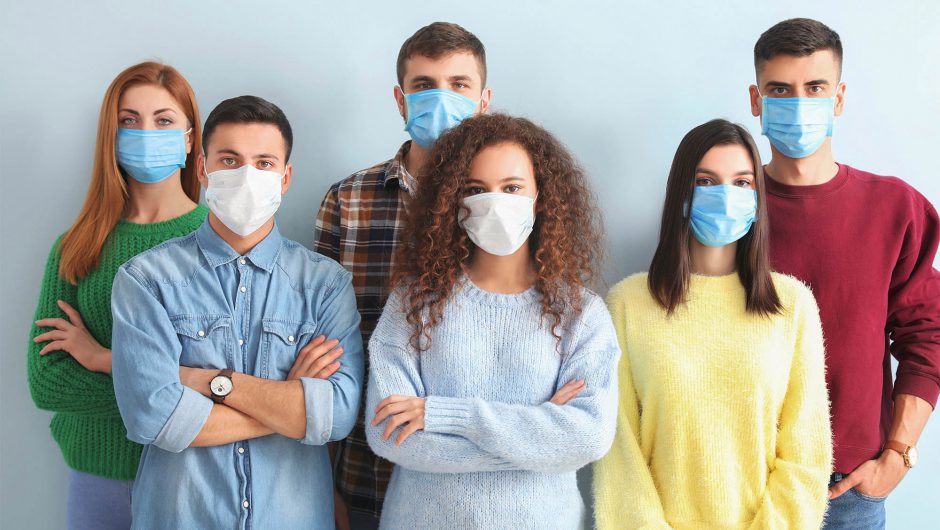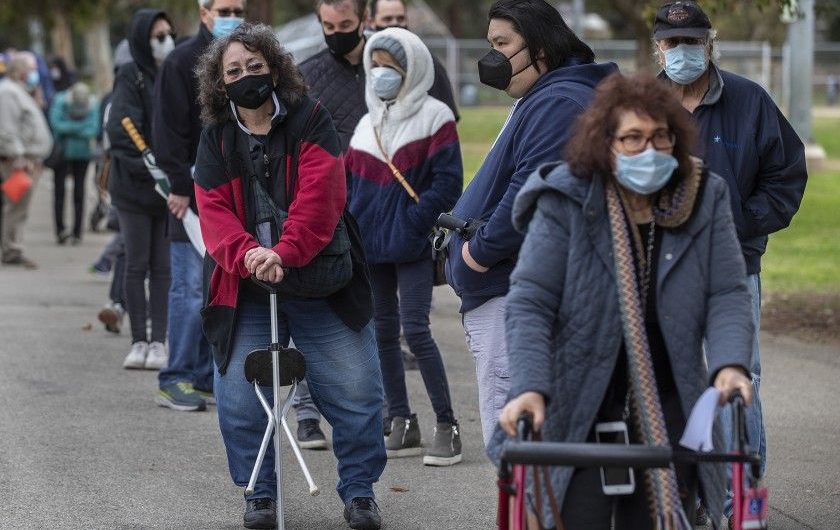[ad_1]
DAYTONA BEACH, Fla. – The first and last time Don Murkerson saw his 26-year-old daughter, Emily, at Halifax Health Medical Center was after she was in the hospital for seven days, when her heart stopped beating.
“It was a terrible situation,” Murkerson said. “I didn’t get to see her at all until we were called in and she was dying.”
On April 29, Emily was crossing the street with her boyfriend on a motorized scooter near the Hard Rock Hotel in Daytona Beach when she was struck by a car, according to her mother, Gale Murkerson. She was taken to Halifax Health Medical Center with multiple broken bones.
Because of the coronavirus pandemic, Halifax Health had strict visitation policies during Emily’s stay in April and early May. ICU patients were not allowed to have any visitors in accordance with federal and state guidelines, spokesman John Guthrie wrote in an emailed statement.
Emily Murkerson, 26, died a week after being stuck by a car in Daytona Beach, Fla.
“Our policy, at Halifax Health, in following HIPAA guidelines, is to not comment on any patient’s care,” Guthrie said. “At all times through the crisis, Halifax Health has been and will continue to follow CDC guidelines for the safety of patients and team members.”
Visitor restrictions at hospitals across the state were standard in April and early May. AdventHealth hospitals in Volusia and Flagler counties also were not allowing patients to have visitors during that time.
Now, Don and Gale are angry that they didn’t get the chance to spend time with their daughter and help her through the last painful week of her life.
“I know we are not the only people in this position,” Don said. “I don’t see the problem in someone that is in that kind of condition with those kind of major decisions to have one person in there. Gale would have stayed.”
Emily’s hospital stay
Emily, who lived in Gainesville with her mother, never lost consciousness from the accident, according to Gale. But she was basically immobile. She had a broken femur, pelvis, ribs and scapula. Her whole right side was covered in road burn, and she couldn’t bear weight on any of her extremities.
Story continues
When she was first admitted, Gale tried to visit her but was denied because of the hospital’s policies. Emily had surgery twice, once on April 29 and again on May 1.
Not even her boyfriend, Sebastian Wilbanks, who was there at the time of the accident, was allowed to see her.
“When I showed up after the accident, I had my mask on and had latex gloves in hand and was still denied visitation due to COVID-19,” Wilbanks, a member of the U.S. Air Force who is stationed in Italy, said in an email. “I told them I was more than willing to get tested as long as I got to see her. They still turned me away.”
When Emily was moved from the ICU to a regular hospital room on May 3, Gale was allowed to see her daughter. But it was just for an hour. Her father and boyfriend were not allowed to visit.
“She could barely lift her right arm to get a drink of water,” Gale said. “She said she’s not critical.”
Based on the conversation with her daughter, Gale thought she was improving, and she was relieved.
But the following week, Emily sent her mother multiple messages asking her to come be with her, that everything hurt and she needed her mother.
But all Gale could do was call the hospital to receive updates on her daughter’s care. She was not allowed to come back.
“Tuesday morning, she calls me in tears. ‘They took my pain pills away. I’m hurting. I need you up here. I need you up here,’” Gale said. “She couldn’t do anything. If anything was out of her reach she was completely helpless.”
Read: Saying goodbye to dying wife likely cost 90-year-old ‘Romeo’ his life, but he had no regrets, family says.
Watch: Toddler window visit with grandparents
On Wednesday, Gale received what would be the last call from her daughter.
“When I talked with her Wednesday morning she was short of breath, nauseated,” Gale said. “At that point she said ‘Mom I gotta go. I’m not feeling good.’”
Later that day, May 6, they got the call that Emily had aspirated and coded multiple times. They were told they should come say their goodbyes.
“This is the worst thing that I’ve ever in my life had to experience, knowing that she was in there begging me several times ‘Mama, I need you.’ You put her in there, you trust them to take care of her and this is what happens,” Gale said. “There is nobody advocating for these patients.”
Gale, Don and Wilbanks came in as their daughter was coding. But only Don and Wilbanks stayed as Emily died. Her official cause of death was pneumonia and aspiration.
“I could not stay until she passed,” Gale said. “And then they gathered her belongings together and escorted us out. That was it.”
Remembering Emily
The Murkersons remember their daughter as a “beacon of light” – someone who would give others the shirt off her back. After she died, her family said they received messages from many people they had no idea Emily knew, saying she saved them and helped them through difficult times in their lives.
“She was always the bright, happy one,” Gale said. “She was always laughing.”
She was an animal lover, according to Don. She also loved kids and was looking forward to becoming an aunt.
“She was very excited to have a blood nephew, and I hate that I can’t see what kind of aunt she would have been for him,” Don said. “That bothers me a lot.”
In March, she had reconnected with Wilbanks, whom she had known since the first grade.
“She finally found the love of her life,” Gale said. “He’d come home from being overseas on leave. She was the happiest she had ever been in her life. She told me, ‘I found my forever.’”
“Our lives were great together,” Wilbanks said. “Spending every moment together while I was on leave. The longest we were apart was while she was in the hospital for those seven days.”
The Murkersons know they aren’t the only ones who weren’t able to see their loved one while they were in the hospital, and they don’t want anyone else to go through what they went through.
“My healthy 26-year-old daughter, yes she had major injuries, but she never lost consciousness. She was doing great. Then she coded and the next thing you know she’s dead,” she said. “I don’t want this to happen to anybody else. No mother or family should ever have to feel this pain. Never.”
Follow Nikki Ross on Twitter: @NikkiInRealLife
This article originally appeared on The Daytona Beach News-Journal: Florida family couldn’t visit dying daughter because of COVID-19 rules
[ad_2]
Source link



